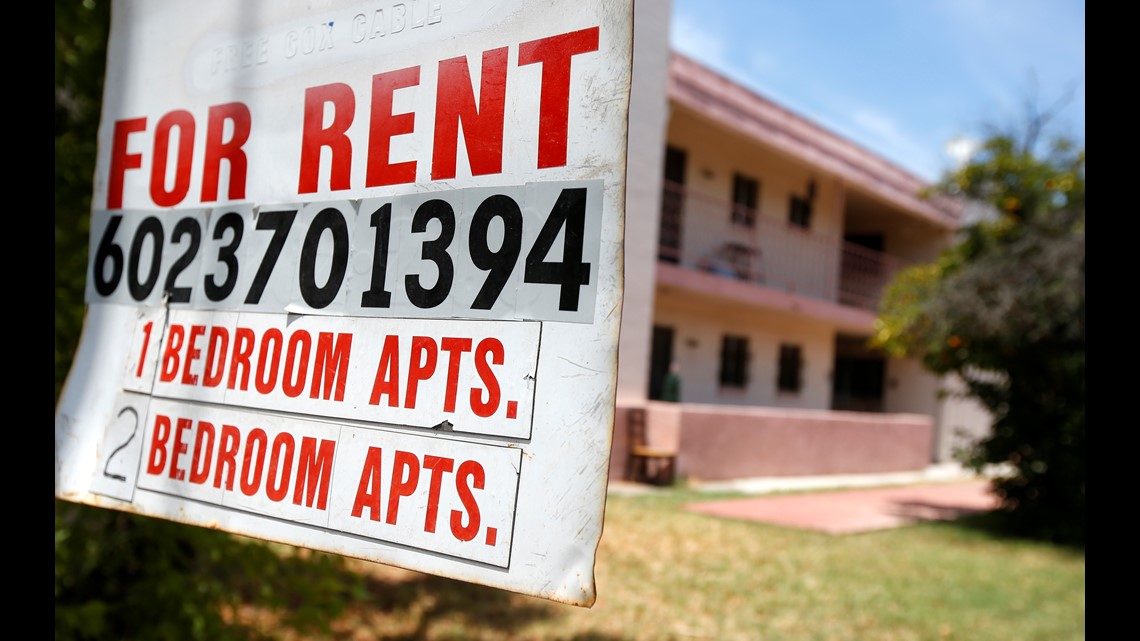DC has a number of organizations that provide people with resources, as well as government services.
WASHINGTON – Eviction notices can cause great stress for tenants in the DC area, but even when times are tumultuous, it’s essential to have key facts on hand and know your rights in the face of what’s happening to us. waits.
The district has a number of organizations that provide people with resources, as well as government services.
First, it’s good to be aware of what an eviction entails. According to the DC government Office of the Tenant Advocate, a landlord must go through the legal process – this is mandatory for all evictions. In addition, in all cases other than non-payment of rent, a declaration to the Rental Housing Division (RAD) is also required.
“A tenant cannot be evicted simply because the original term of the lease expires or because the rental property has been seized,” the office clarifies, sharing that an evicted tenant must receive a written “eviction notice” (unless for non-payment of rent, if the tenant has waived the right of termination in the lease); an opportunity to remedy the breach of the lease if that is the basis of the action and an opportunity to contest the landlord’s claims in court.
The office also says any deportation must be in accordance with a court order and must be scheduled and overseen by the US Marshals Service.
The office lists the following reasons why a landlord can evict a tenant; an owner should have one of ten specific legal reasons:
- Non-payment of rent;
- Violation of a rental obligation, which the tenant has failed to correct after formal notice;
- The tenant has committed an illegal act in the rental unit;
- The landlord is seeking in good faith to occupy the rental unit for personal and occupancy purposes;
- The landlord sells a rental unit to a party that seeks in good faith to occupy the rental unit for personal and occupancy purposes;
- The landlord seeks to renovate the rental unit in such a way that the tenant cannot safely occupy it;
- The landlord seeks to demolish the rental unit;
- The owner seeks to substantially renovate the rental unit;
- The landlord seeks to terminate the rental unit for housing and occupancy; Where
- The landlord seeks to convert the rental unit into a condominium or co-op after obtaining government approval.
According to the Consumer Financial Protection Bureau, if your lawsuit has not yet been filed, you should start by asking local organizations for federal funds to cover rent, utilities, and other housing costs.
The DC Department of Social Services has a Emergency Rental Assistance Program, which helps district residents earning less than 40% of the area’s median income who face housing emergencies. The program provides funding for unpaid rent, including late fees and court costs if the eligible household faces eviction.
Additionally, the bureau suggests that you should talk with your landlord about developing a repayment plan and whether they’re willing to work with you or consider filing an eviction lawsuit.
“Sometimes the hardest thing is just to start the conversation,” says the office on its website.
If a landlord has already filed a lawsuit, tenants should try to speak to a lawyer as soon as possible and get help with rent and utilities if possible, contact the court clerk and ask more questions about your case and file a written response telling the court why you should not be evicted.
Wednesday, The National Center for State Courts shared that they received a donation from the Wells Fargo Foundation to expand their eviction diversion initiative.
According their website.
DC, along with a number of other states, will feel the effects of the new funds, including improved court processes with the goal of building “stronger communities and seeing fewer evictions.”
Also on Wednesday, DC Mayor Muriel Bowser highlighted the Department of Housing and Urban Development’s new project, sharing the government’s efforts to help residents pay for housing and hopefully avoid future evictions.
HUD’s project has taken three acres and two vacant properties and revitalized them, creating hundreds of affordable housing units for seniors and mixed-income residents in Ward 4.
Mayor Bowser also highlighted the $1.4 billion his administration has invested in the district’s Housing Production Trust Fund and the Affordable Housing Toolkit the district is using to reach 36,000 new homes by 2025. , including at least 12,000 affordable housing units.
The fund is described as a major tool used to produce and preserve affordable housing in the District; it is a special revenue fund administered by the Development and Finance Division (DFD) of DHCD that provides surge funding for affordable projects for low- and moderate-income households, according to the website.
From January 2019 to March 2022, the district produced 21,915 net new units, of which 4,165 are affordable. You can follow the district’s progress toward #36000by2025 at open.dc.gov/36000by2025.
WUSA9 is now enabled Roku and Amazon Fire TVs. Download the apps today for live newscasts and video on demand.
Download the WUSA9 app to get the latest news, weather and important stories at your fingertips.
Sign up for the Get Up DC newsletter: Your forecast. Your journey. Your news.
Sign up for the Capitol Breach email newsletter, which will provide you with the latest news and a summary of the investigation into the Capitol Riots on January 6, 2021.

